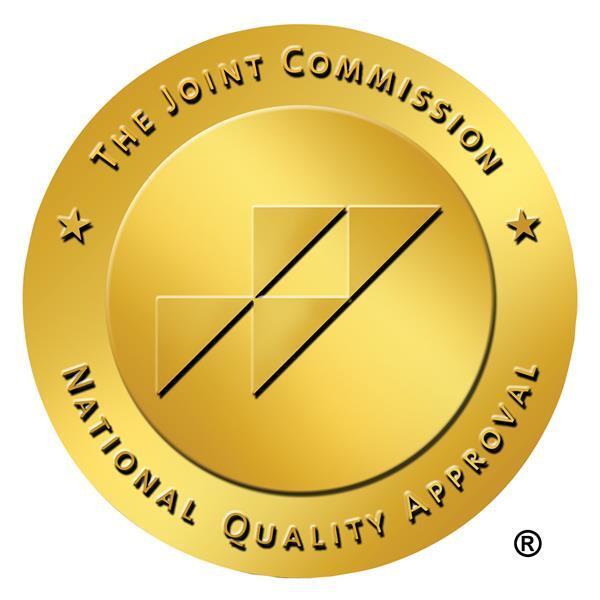Understanding ADHD Treatment: Outpatient Wellness Services for Your Needs
Our Approach to ADHD Management
Living with ADHD can be a challenge for people who don’t have the tools to manage it effectively. Mind Body Optimization aims to combat these challenges with our comprehensive ADHD treatment.
Mind Body Optimization (MBO) stands as a leading mental health facility in Texas, offering a unique and integrative approach to treating attention-deficit/hyperactivity disorder (ADHD). As a concierge-style service, MBO is committed to providing individualized care that addresses the diverse needs of our clients.
We’re here to help create a healthier community — one individual at a time.

Understanding ADHD
ADHD is a neurodevelopmental disorder. It’s characterized by persistent inattention, hyperactivity, and impulsivity that interferes with daily functioning.1
ADHD affects both children and adults, with an estimated prevalence of 5% in children and 2.5% in adults worldwide.2
The challenges associated with ADHD can significantly impact various aspects of life, including:
Education
- Stay focused during lectures
- Complete assignments on time
- Keep their study materials organized
Work
- Meet deadlines
- Follow through on tasks
- Maintain focus during meetings or presentations
Relationships
- Interrupting others during conversations
- Forgetting important dates or events
- Reacting impulsively in emotionally charged situations
Importance of Understanding ADHD and ADHD Treatment
- Develop effective communication strategies
- Establish realistic expectations
- Cultivate a supportive and empathetic environment
ADHD Treatment: Conventional Approaches vs. MBO's Integrative Method
Medications
Stimulant medications, such as methylphenidate and amphetamines, are often the first-line treatment for ADHD.6
These medications work by increasing dopamine and norepinephrine levels in the brain. This improves attention and reduces hyperactivity and impulsivity.
Therapy
Behavioral therapy is also commonly used to help people with ADHD develop coping strategies and improve their functioning. This includes techniques such as cognitive-behavioral therapy (CTB).7
MBO’s Approach to ADHD Treatment
The MBO Advantage: A Transformative Approach to ADHD Treatment
Addressing Mental Aspects
Effectiveness of CBT in ADHD Treatment
- Enhance focus
- Resist distractions
- Promote thoughtful decision-making
Addressing Physical Aspects in ADHD Treatment
Recognizing the profound impact of physical health on mental well-being, MBO incorporates tailored exercise programs and nutritional support to optimize brain function and mood regulation.
A balanced diet rich in essential nutrients can support cognitive function and mood stability. Regular exercise has been shown to boost dopamine levels and improve focus.
Our compassionate team will collaboratively design individualized exercise routines that cater to each client’s needs and preferences, fostering a holistic approach to well-being.
Additionally, our nutritional experts (coming soon) will work closely with clients to develop personalized meal plans that optimize brain health and support overall physical wellness.
Addressing Emotional Concerns
Psychoeducation and Skill Building in MBO's ADHD Treatment Program
Psychoeducation is a crucial component of MBO’s ADHD treatment program.
MBO helps foster a better understanding of the disorder by providing people and their families with information about:
- ADHD
- Its causes
- Its impact on daily life
Time Management Skills
People with ADHD often struggle with poor time perception, procrastination, and meeting deadlines.
An effective program equips clients with techniques such as:
- Using calendars
- Setting reminders
- Breaking down tasks into smaller steps
- Prioritizing to improve their time management abilities
Organizational Skills
- Lost items
- Missed appointments
- Cluttered workspaces
Problem-Solving Skills
- Breaking down complex issues into smaller parts
- Generating multiple solutions
- Evaluating the pros and cons of each option
Emotional Regulation Skills
People with ADHD often experience intense emotions and struggle with impulse control.
Effective treatment provides training in:
- Recognizing emotional triggers
- Implementing calming techniques (e.g., deep breathing, mindfulness)
- Developing healthier coping mechanisms to manage emotional outbursts and impulsivity
Interpersonal Skills
- Active listening
- Interrupting others
- Managing emotions during social interactions
CBT as Part of an ADHD Treatment Program
Identifying and Challenging Negative Thought Patterns
Developing Strategies for Managing Impulsivity and Improving Attention
- Mindfulness exercises
- Goal-setting
- Problem-solving skills
Importance of the Dual Approach to ADHD Treatment
How CBT is Delivered
- Set goals
- Practice new skills
- Receive feedback
Mindfulness and Stress Reduction
- Enhance attention and reduce anxiety: Mindfulness exercises can help people with ADHD improve their ability to focus and manage anxiety symptoms. This includes meditation and deep breathing.8
- Develop stress-reduction techniques: By learning to be present in the moment and observe their thoughts and emotions without judgment, people with ADHD can better cope with the overwhelm and frustration often associated with the disorder.
MBO’s emphasis on mindfulness and stress reduction complements other treatment modalities. This provides people with a holistic set of tools for managing their ADHD symptoms.
Nutrition and Exercise in ADHD Treatment
Nutritional Support and Counseling (Coming Soon)
Tailored Exercise Programs
Regular physical activity has been demonstrated to improve focus, reduce impulsivity, and boost dopamine levels in people with ADHD. Exercise not only promotes physical health but also enhances cognitive function and emotional well-being.
Our expert team will design individualized exercise routines that cater to each client’s needs, preferences, and fitness levels. These routines may incorporate a combination of cardiovascular exercises, strength training, and mindfulness practices.
By engaging in regular physical activity, people with ADHD can experience improved attention, better impulse control, and increased self-esteem. MBO’s holistic approach to ADHD treatment lays the foundation for sustainable healing and optimal functioning.11

Get Effective ADHD Treatment at MBO
Mind Body Optimization’s integrative approach to ADHD treatment offers a comprehensive and individualized path to well-being. By addressing the mental, physical, and emotional aspects of a person’s life, MBO empowers those with ADHD with the skills and strategies for long-term success.
Our Approach
- Psychoeducation
- Skill-building
- Cognitive-behavioral therapy
- Mindfulness practices
- Nutritional support
- Tailored exercise programs
Contact Mind Body Optimization Today
If you or a loved one is struggling with ADHD, know that you’re not alone. Mind Body Optimization is here to support you on your journey to well-being. Our empathetic and experienced team is dedicated to providing the highest quality care, tailored to your unique needs.
To learn more about MBO’s whole-person ADHD treatment programs or to schedule an appointment, please reach out to us.
Together, we can pave a path worth following. One where we can all find sustainable change.
Resources
- https://www.cdc.gov/ncbddd/adhd/facts.html
- https://www.ncbi.nlm.nih.gov/pmc/articles/PMC7916320/
- https://www.ncbi.nlm.nih.gov/pmc/articles/PMC3715757/
- https://add.org/impact-of-adhd-at-work/
- https://www.ncbi.nlm.nih.gov/pmc/articles/PMC10399076/
- https://www.ncbi.nlm.nih.gov/pmc/articles/PMC8063758/
- https://www.ncbi.nlm.nih.gov/pmc/articles/PMC6494390/
- https://www.ncbi.nlm.nih.gov/pmc/articles/PMC9690476/
- https://www.ncbi.nlm.nih.gov/pmc/articles/PMC5603098/
- https://www.ncbi.nlm.nih.gov/pmc/articles/PMC10444659/
- https://www.ncbi.nlm.nih.gov/pmc/articles/PMC6945516/






